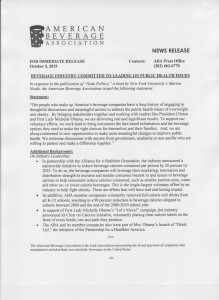100 Mayors Sign Milan Urban Food Policy Pact
This morning, I received this press release from Franca Roiatti in Milan, announcing that on October 15 the mayors of more than 100 cities signed the Milan Urban Food Policy Pact and Framework for Action. This pact commits these cities—New York among them—to work for more equitable and sustainable urban food systems.
The mayors made 7 commitments, among them working to
- Develop sustainable food systems that are inclusive, resilient, safe and diverse, that provide healthy and affordable food to all people in a human rights-based framework, that minimise waste and conserve biodiversity while adapting to and mitigating impacts of climate change;
- Engage all sectors within the food system (including neighbouring authorities, technical and academic organizations, civil society, small scale producers, and the private sector) in the formulation, implementation and assessment of all food-related policies, programmes and initiatives;
- Use the Framework for Action as a starting point for each city to address the development of their own urban food system and we will share developments with participating cities and our national governments and international agencies when appropriate;
The Framework recommends 37 actions, among them
- Identify, map and evaluate local initiatives
- Develop or revise urban food policies and plans
- Address non-communicable diseases associated with poor diets and obesity, giving specific attention where appropriate to reducing intake of sugar, salt, transfats, meat and dairy products and increasing consumption of fruits and vegetables and non-processed foods
- Develop sustainable dietary guidelines to inform consumers, city planners (in particular for public food procurement), food service providers, retailers, producers and processors, and promote communication and training campaigns.
- Explore regulatory and voluntary instruments to promote sustainable diets involving private and public companies as appropriate, using marketing, publicity and labelling policies; and economic incentives or disincentives; streamline regulations regarding the marketing of food and non-alcoholic beverages to children in accordance with WHO recommendations.
- Those aimed at social and economic equity (cash transfers, school feeding programs, employment, education, training, research).
- And those aimed at improving food production and reducing waste.
Finally, it comes with an e-book that collects 49 selected good practices from 28 signatory cities.
The point? Even though everything about this pact and framework is voluntary, these findings and recommendations ought to be enough to give any city mayor a mandate to start working on sustainability issues.
I am looking forward to seeing how New York City uses the report and framework.
Additional documents
- The Milan Mayors’ press release
- For a detailed comment on the importance of this pact, see Tim Lang’s “all hail.”




